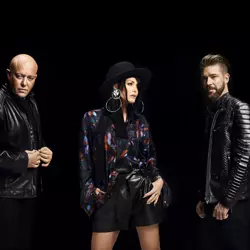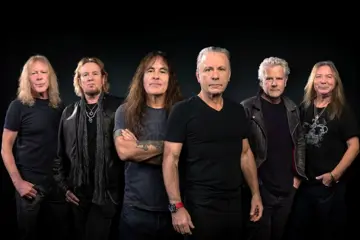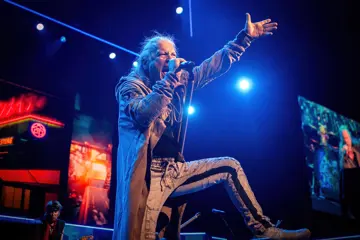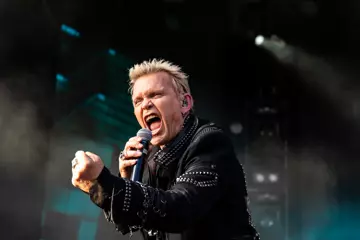 Aqua
AquaIt was actually a greatest-hits tour that brought Aqua back to life. And it was a Danish beer company that brought them to the 'Greatest Hits' tour.
In 2008, Aqua's singer Lene Nystrøm sat watching TV, when an advertisement for a popular Danish Beer company's annual music tour came on. The ad was for a landmark celebration for the festival, and in the highlight reel, Nystrøm caught a glimpse of the Aqua of old; a video of them playing the festival from some years ago. Them, younger, full of colour, and at the height of their success, beaming out from her TV screen. “I think she got chills,” guitarist Claus Norreen recounts.
It'd been a growing sentiment over the years prior that the band should reunite. They had all felt it, but being separate, and separating as they had, there had been no ideal climate in which their reuniting could be brought up.
“Lene called Rene [Dif] up straight away,” Norreen continues, “and she just said, 'Shouldn't we go do that?'”
And so, with very little convincing, and a little more calling-around, it was.
Aqua had split unexpectedly, back in 2001, after singer Nystrøm, who formerly dated co-singer Dif, began to court bassist Søren Rasted. There had been backlash over some overt sexual inferences they'd made during their Eurovision performance of Barbie Girl that year, and Dif later suffered a bout of exhaustion on that same tour. Like the climax of a great episode of Behind The Music, all that ground against itself, pressure and politics, and, feeling it a turmoil they couldn't quell, the band split.
Flash forward to 2009, and the band release their second Greatest Hits album on the back of some 25-stop tour with the Danish Beer company's festival. Their first new song in eight years, Back To The '80s, which was released in cohorts with the album, shot feverishly to the top of the charts. The success of that brought them to the recording of an entirely new album, Megalomania.
Don't miss a beat with our FREE daily newsletter
“We've always had our own sound, I think,” Dif notes when asked if the band feared that the landscape of pop had changed too much in their absence. “We have our own way of creating a pop song, and our own process. It's always going to sound like an Aqua song, no matter what.”
“I think we at least updated the keyboard patches!” Noreen laughs. “Of course, everybody gets inspired by what they're listening to, and [from that they] pick up ways to make sounds that are [naturally] contemporary. Personally, I'm quite inspired by the whole electro-house scene, which is quite analogue, and there's not that many strings or pianos, [and from that] I think the only conscious thing in the whole process [of making Megalomania] was to give it some more attitude.”
“I think music in general is always evolving, and I think the sound is more aggressive and hard these days, and distorted,” Dif adds. “Music has, through the years, and since we did our first album – dance music and pop music in particular – has got a lot more 'in your face'. You can do a lot more tricks and bits and pieces in the music now that you would have dared to do in the old days. Pop music has a lot more 'club' sound, these days, and I think our new album does too. You don't even need to remix music these days, because the songs already have that attitude!”
Hurdles and differences behind them, the Danish dance-pop supergroup are back, and, if anything can be told from their current demeanour, it's that they're excited as hell.















